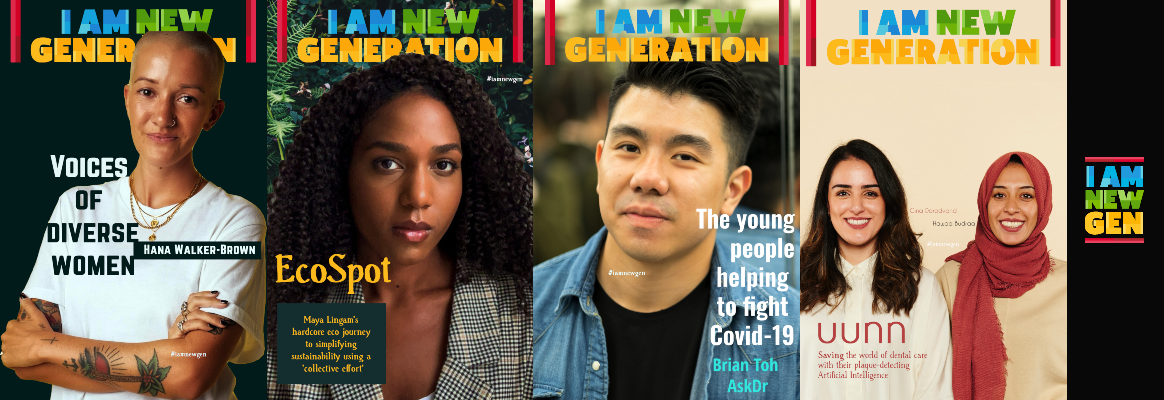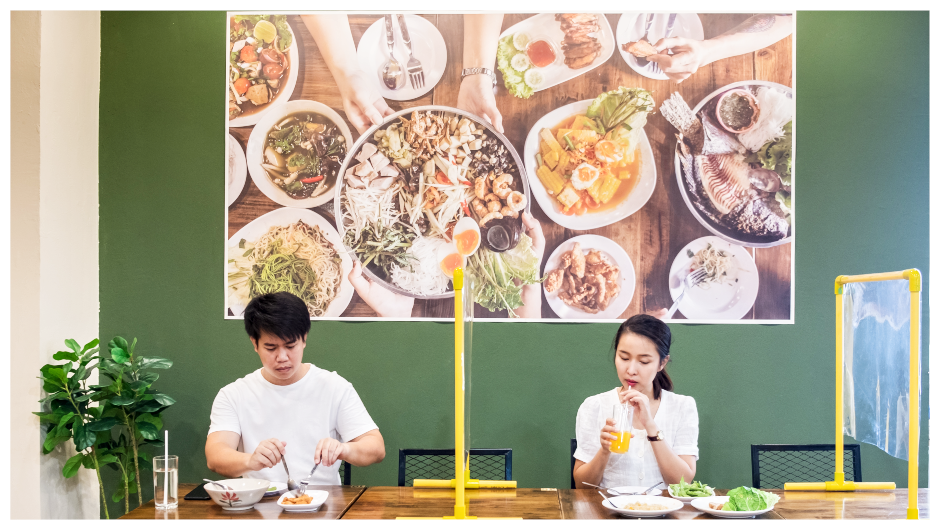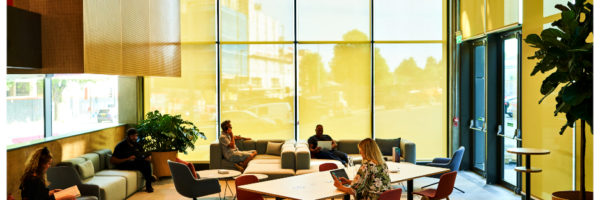The era of the new normal in the Low Touch Economy – ‘People are creating new habits, new regulations are being introduced, or evolving. And that creates a very interesting environment where there are a lot of new needs and new problems…’
Opening Brownber Hall four years ago was a labour of love for husband-and-wife team, Peter and Amanda Jaques-Walker.
The eight-bedroom Cumbrian B&B underwent an extensive renovation project to turn it into the upmarket property it is today but after winning hotel of the year at the i Newspaper Staycation Awards in 2019, it finally felt like that hard work was starting to pay off.
“In January we were really excited about a really busy year,” Peter says. “[Lockdown] was a cliff edge for us really. We had to cancel and refund everyone.”
The hotel and restaurant has been closed since; its eight staff on furlough. “The point it happened was around the time when we usually start to get busy again,” Amanda adds. “Which was particularly painful.”
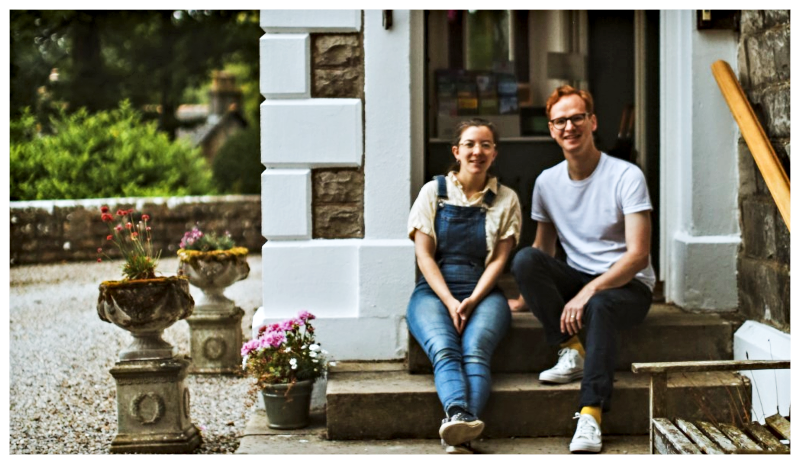
While Covid-19 has had an impact on every business around the world, research has shown the hospitality and leisure sectors have been the worst affected, losing more than half (53%) of their monthly income.
Questions abound about how businesses can reopen as lockdown measures ease and the changes that might be required for them to thrive in the ‘new normal’ low touch economy.
Experts from the Imperial College London estimate that the pandemic will disrupt daily life for up to 18 months, with new consumer habits subsequently adopted in the long term.
The Board of Innovation has coined this new era, the ‘Low Touch Economy’, with expected behaviour change to include an increased anxiousness and damaged trust in the hygiene of people and products, a more remote workforce, increased demand for home delivery and takeaways, and the rise of human-free interactions.
“Where I get excited is the fact that all these changes means the status quo is now being challenged,” Nick De May, insights lead and co-founder of the Board of Innovation, says.
“With that comes opportunity – there is, for example, a new (older) generation that has proactively engaged with digital services (such as online shopping and video conference calls) for the first time.
“He also sees potential for collaborations between businesses who can claim their customers are ‘safe’, such as Emirates Airlines which has become the first airline to conduct rapid Covid-19 blood tests for passengers.
“That’s really valuable – you can basically start swapping or sharing clients with other people in your value chain [hotels, local attractions, restaurants, etc],” De May adds.
“People are creating new habits, new regulations are being introduced, or evolving. And that creates a very interesting environment where there are a lot of new needs popping up and new problems that you can solve as a business … [ask yourself] ‘how can I still create value in this new world?’”
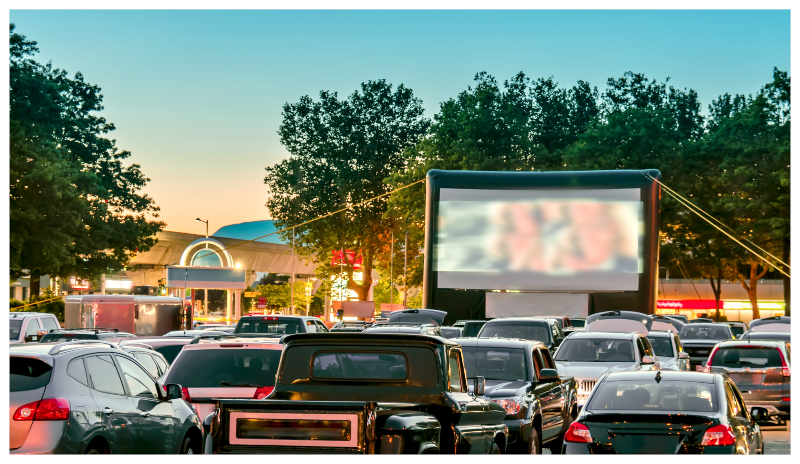
In Miami, Eddie Bernal (32) and his wife set their events technology company up 10 years ago. Since then, the business has grown to support 17 salaried staff (and up to 130 freelancers), turning over more than a $1m a month in revenue.
“The event industry was obviously the first one to crash,” he says about the pandemic. “When [this] was declared a national crisis, our team sat down, regrouped and we talked about ‘what’s next?’”
They’ve since hired three television studios to run virtual events for corporate clients and launched a drive-in movie theatre, Carflix Cinemas.
It’s an idea that’s been incredibly popular so far, selling more than $30,000 worth of tickets every weekend, as locals scramble to enjoy leisure time while socially distanced from other families.
“There’s a lot of demand – we have requests from 12 cities to bring this project there,” Bernal says.
It’s a similar story in Germany, where almost 30 drive-in theatres have opened since the beginning of the pandemic, holding concerts and church services as well as screening films.
As to whether Bernal will keep running Carflix long term, he’s not so sure the margins are there. However, he’s open to possibilities and does see potential in the virtual corporate events side of the business.
“The events industry is never going to be the same,” he adds. “[But] we’re basically innovating and creating a space that didn’t exist before.”
Some sectors have been liberated by Covid-19, with regulations relaxed in record time and users being more open to e-solutions.
Taiwanese entrepreneur Dr Yen-Po (Harvey) Chin (27) says he’s seen massive growth in local and international demand for online consultations via DermAI, a business he co-founded two years ago.

Initially, users could upload a picture of any moles they were concerned about to the app, which would identify those that needed further examination by a dermatologist using artificial intelligence.
But the team received so many requests for help with other skin conditions, they realised they needed to add more functionality.
“We originally planned to launch this service in July 2020,” he says about the online consultations. “But with Covid-19, we saw a huge opportunity, so we worked around the clock to make this happen by 30 March.”
The potential of e-health solutions have been talked about for years, but the regulations around patient privacy, in particular, have limited its widespread adoption, he says. “Also, doctors tend to reject new things … But definitely this pandemic has left no choice for people, because you just cannot see patients [otherwise].
“I think after people try [using e-health platforms], they will start to question whether a lot of in-person visits are a necessity … It will fundamentally change a lot of the ways we deliver healthcare.”
Back in the UK, the Jaques-Walker are preparing to reopen the hotel and on-site guest house as luxury private rental properties in August, resigned to the fact that they won’t be able to run their business in the same way in this new low touch economy.
“What we love about Brownber is the way you can come and totally relax and feel like you’re in someone’s house … that didn’t seem possible with everyone having to wear face masks,” 38-year-old Peter says.
“We looked for ways to allow people to still have that experience here.”
“In the short term it’s a very tricky situation but I feel if we can get to the point where the UK hospitality industry can reopen, it could have a real boom,” Amanda (34) adds.
“There’s an increased focus on wanting to support local businesses, and perhaps people not wanting to go on the cheap weekends abroad [at the moment]. We’ve got a slightly captive audience.”
Written By: Emma Sheppard – a freelance journalist and editor covering business sectors, current affairs, lifestyle and travel – @Emmalousheppard
Images Copyright – Images supplied by the interviewees / Shutterstock / I Am New Generation Magazine
More Stories
The women on a mission to redefine nude with their ‘skin-toned plasters’ – Skin Bandages
These Arts workers moved online during the pandemic and they are ‘thriving’
Voices of ‘diverse women’ – Why the world is ready!
The young people, around the world, helping to fight Covid-19
